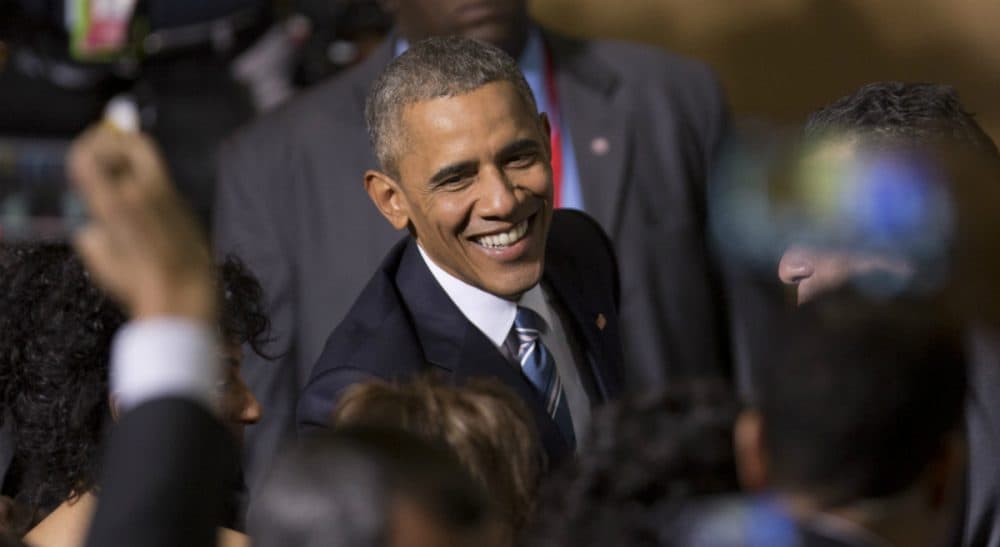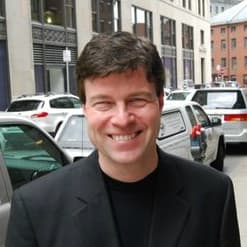Advertisement
The Real Reason The U.S. Is Normalizing Relations With Cuba

Just before he was about to impose the embargo on Cuba, President John F. Kennedy sent his press secretary, Pierre Salinger, down to the island. Salinger’s top-secret mission? Get enough Cuban cigars to last a good long while. JFK liked a good smoke and he knew the best smokes in the world were going to be much tougher to get.
Salinger returned with at least 1,200 and Kennedy promptly squirreled them away. Part of the mythology of the presidency is that, upon taking the oath of office, one learns all of the nation’s great secrets: What really happened at Roswell? Was the Moon landing faked? And, of course, where are those Cuban cigars?
So why did Barack Obama suddenly return to Cuba after over 50 years of tough sanctions?
while much has been made of the humanitarian and geopolitical rationales for America’s thaw with Cuba, the real driver is something altogether different: Money.
The White House must have run out.
To be fair, the president, once a heavy cigarette smoker, reputedly no longer indulges. But many others do. And while much has been made of the humanitarian and geopolitical rationales for America’s thaw with Cuba, the real driver is something altogether different: money.
Cuba, as is well known, is a basket case. Prior to the Castro-led revolution, it was a play land, filled with gorgeous hotels, vibrant nightlife and gambling casinos — along with attendant ills such as prostitution and endemic corruption. That largely ended with the revolution. However, the state-controlled economy stagnated and the U.S. embargo made things worse. For a while, the nation was propped up with heavy subsidies from the Soviet Union. Venezuela stepped into the breach after the USSR’s collapse in 1991, but was no match for Russia and is now beset by its own issues — not the least of which is the dramatic fall in oil prices.
As a result, average annual incomes in Cuba are now just about $5,500. As newscasters who accompanied Obama discovered, the place looks like it could be a movie set for a historical drama. The automobiles hearken to the 1950s. Modernity seems to have passed the country by, whether it’s architecture or technology. Internet access is limited and slow. Sugar cane and other exports aren’t enough to support residents, much less allow for growth. And the population is aging too, with fewer young workers around to support a growing number of retirees.
For all of these reasons, it’s easy to understand Raul Castro’s desire for a thaw in relations with the U.S. But why is the U.S. so eager?
The cigars, of course. But that’s only a small part of what drives the pressure to ease the embargo. Another big piece is tourism. American hoteliers, including Marriott (now the world’s largest), are even now making plans to build and refurbish resorts in Cuba. Despite years of communism, the country still has a reputation has a place of music, dance and easy living, exactly the kind of thing that would pull in droves of visitors and perhaps even give Las Vegas a run for its money.
We may not like Cuba’s system of government. But it’ll be a great place to do business.
But an even bigger factor is Cuba’s people. The Castro dictatorship kept the island economically backward, to be sure, but in one area it has shone: Its citizens are exceptionally well educated. Almost everyone is literate and many have gone on to higher education. Cuba’s well-regarded doctors and nurses are sent off, kind of like exports, to predominately South American countries without decent medical staff. And that reputation is why many in wealth and power, such as the late Venezuelan President Hugo Chavez, go to Cuba for their health care. In fact, to a large extent, Cuba’s education system puts the United States to shame.
But with the economy so bad, all of those highly educated and well-trained people have little to do. There are stories, for instance, of doctors who don’t practice their professions, making more money as maids at hotels.
It’s a pool of talent that American businesses covet. As happened with China, they see an economically revived Cuba as a potentially significant market for U.S. goods and services. But they also see Cuba as place to set up shop. Biotech companies, desperate for skills in short supply, look to Cuba as a solution.
Economics is a powerful force in human lives, oftentimes more so than ideology or politics. We may not like Cuba’s system of government. But it’ll be a great place to do business.
